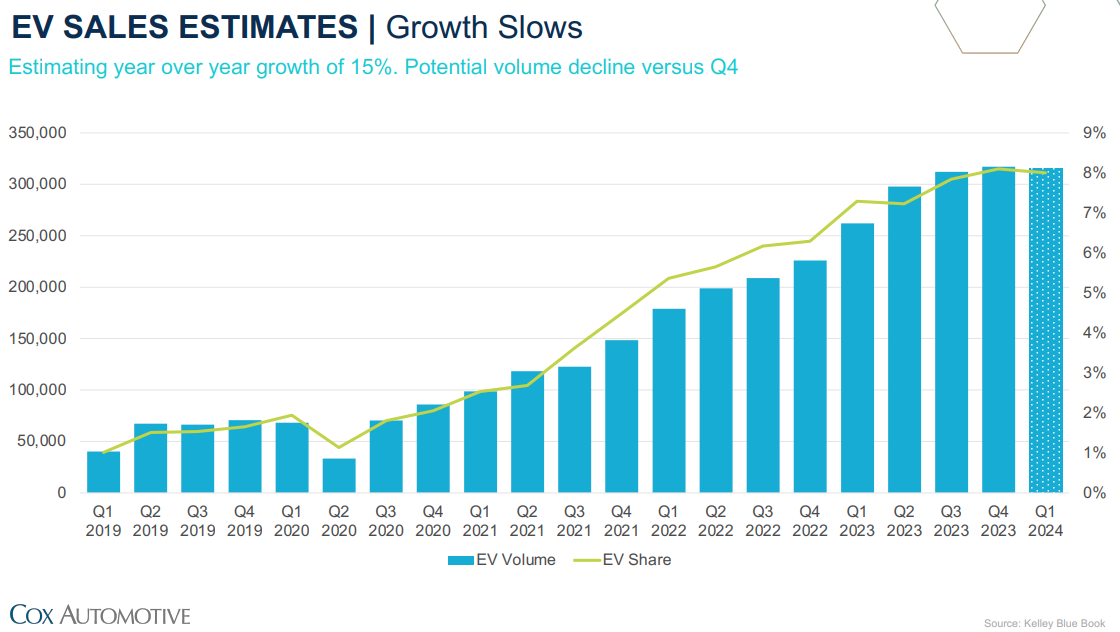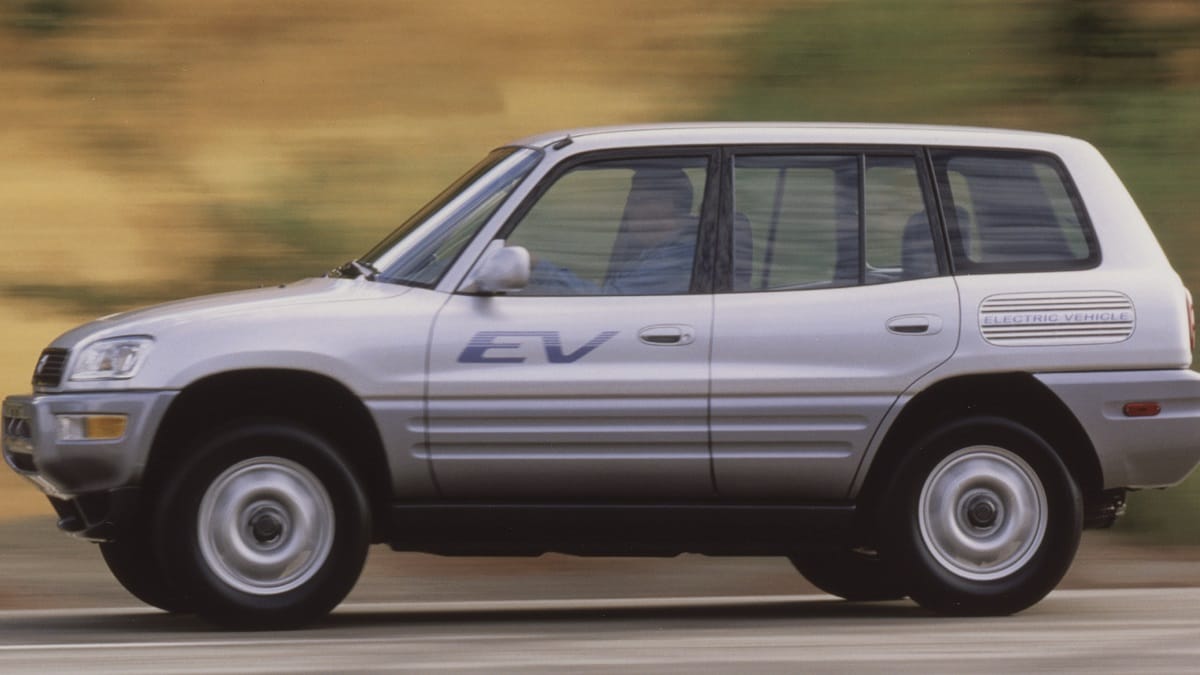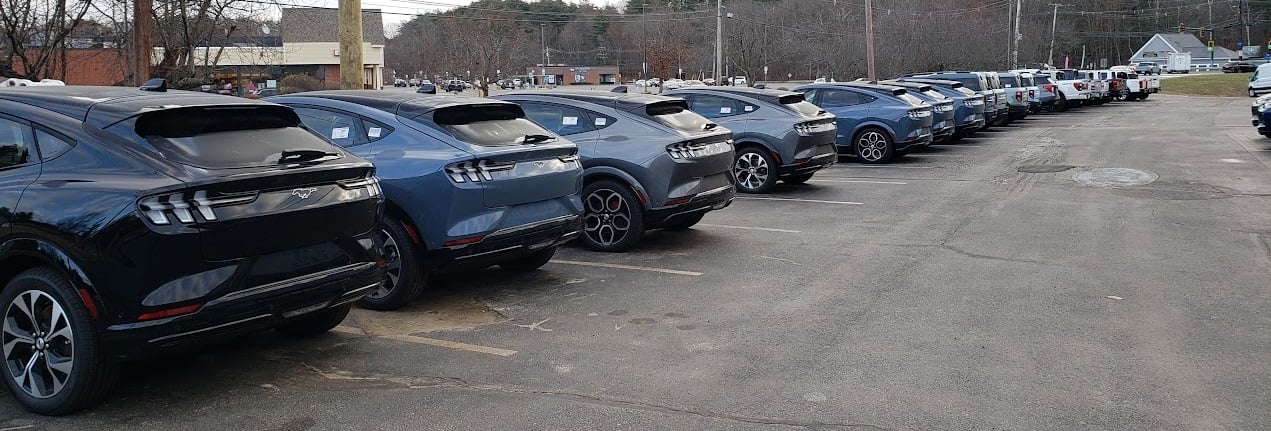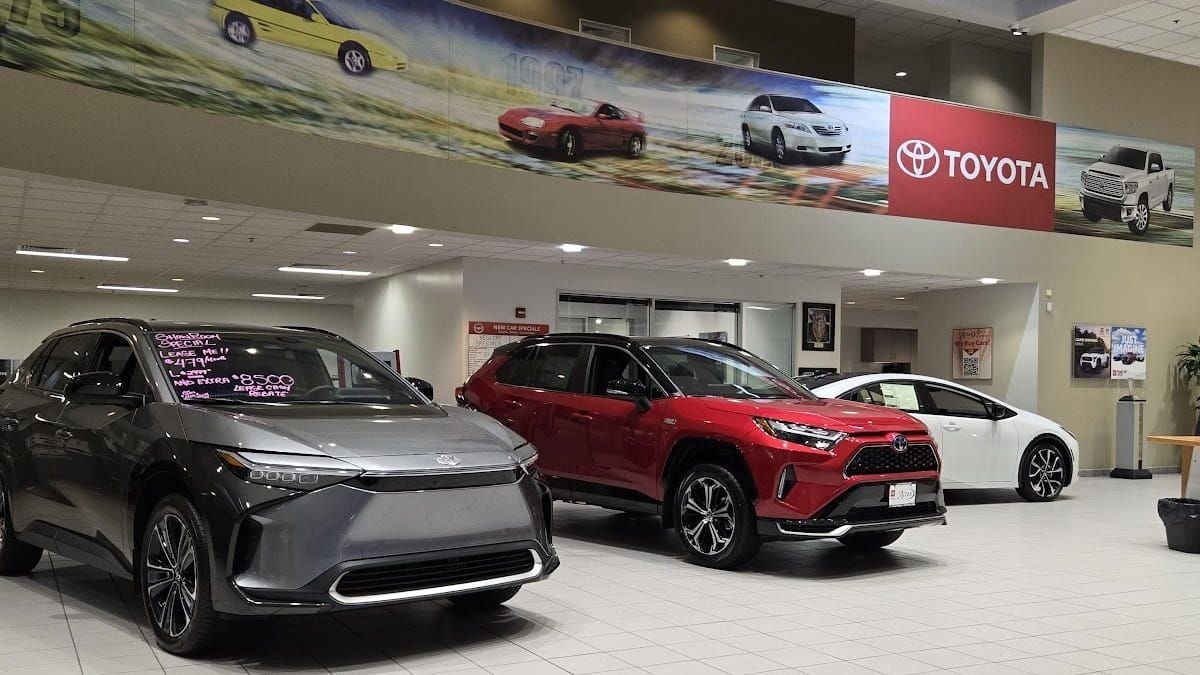Today, more than nine in ten American shoppers opt not to purchase an electric vehicle when they shop for a new car. The percentage of those who buy EVs varies widely from state to state and even from areas within a given state. A comprehensive market analysis published in March 2024 by Kelley Blue Book by Cox Automotive shows that EV sales stalled in 2023 and leveled off at around 8% of new vehicle purchases. This past February, the percentage of EVs purchased had dropped to 6.5%, according to market experts at Edmunds.

This is despite immense political pressure to mandate EVs, financial incentives directly to automakers and also directly to consumers, and a very wide selection of EVs now available from every major brand, as well as many minor ones. Even steep dealer and brand discounting has not stopped the leveling off and slight (temporary?) dip of EV purchases.
EVangelists think they know why folks don't buy an EV. In a recent story published in Clean Technica, the author lists the following reasons as to why EVs are not selling in 2024 like they did in 2022:
-Inflation
-Interest rates
-Political hostility towards EVs
-States hitting EVs with punitive taxes that far exceed lost gas tax revenue
We see the reasons differently. After all, the politicians who are making vehicle policy and control the DOE and EPA today could not be more supportive of EVs. Inflation and interest rates affect all vehicles more or less equally, and state roadway taxes levied on EVs are an order of magnitude smaller than the state EV subsidies offered.
 A Quick Look Back at the Timeline of EVs
A Quick Look Back at the Timeline of EVs
The modern age of electric vehicles began about 28 years ago with the introduction of GM’s EV1 in 1996, which was followed quickly by Toyota’s first-generation all-electric RAV4 in 1997. Both were mostly experimental, and both brands learned that battery-electric vehicles (BEVs) were unprofitable and impractical. Both continued to work on EVs off and on, with Toyota embracing electrification, but not in the form of all-electric vehicles. In terms of vehicle generations, EVs are now in their fourth or fifth generation at some companies.
12 Reasons Why More Than Nine Out of Ten Shoppers Don’t Buy An EV
1) Automakers Don’t Make Battery-Electric Vehicles For the Largest Vehicle Segment
The largest vehicle segment in America is compact crossovers. Subcompact crossovers now overlap with this group, but on their own, the RAV4 and CR-V segment is larger than trucks and dramatically larger than full-size SUVs. Sedans and cars are on life support. There is no AWD compact or subcompact crossover battery electric vehicle on sale in America at the average price Americans pay for such vehicles. There never has been one and none have been announced as coming. We explore this in detail in our story, EVs Miss the Mark - Where’s the Mid-Trim $33K AWD Crossover SUV? If politicians and EVangelists want Americans to adopt BEVs, why have they ignored the most popular vehicle type?
2) Hybrids Scratch the Green Vehicle Itch For Many Shoppers
Hybrid-electric vehicles provide a way for drivers to reduce their carbon footprint. Many hybrids produce 30% to 50% less emissions, offer increased range, and improve performance. Toyota hybrid models have proven to have a very low cost of ownership and very high reliability.
3) Winter Highway Range Is Terrible In BEVs
In our testing, most EVs do achieve their EPA-Estimated range in ideal conditions. However, winter temps can reduce EV range by as much as 40%. Operating a BEV at highway speeds on a long trip diminishes range even further from its ideal. The upshot of this is that a vehicle with a 300-mile range can see that range reduced to less than 60% of its rating in winter highway driving. For some shoppers, this is a limitation they would rather not deal with.
4) BEVs Have Proven Less Reliable Than Other Vehicle Options
Despite the promise that BEVs will improve reliability someday, they have not demonstrated that in 27 years of operation. Multiple studies have shown that the most modern EV designs still underperform with regard to reliability. In the most recent J.D. Power Dependability Study, one of the five conclusions revealed by the owner surveys was that "Electrified vehicles more problematic than others: Owners of battery electric vehicles (BEVs) and plug-in hybrid electric vehicles (PHEVs) experience more problems than owners of gas-powered and hybrid vehicles. BEVs are most troublesome (256 PP100), followed by PHEVs (216 PP100)." Reliability is a priority for many shoppers.
5) BEV Repair and Maintenance Cost Savings Have Not Materialized
Despite the promise that BEVs could have a lower cost for maintenance and repair, this isn’t yet the case. Multiple studies have shown that BEVs offer no meaningful reduction in maintenance and repair costs compared to other options such as hybrids. Higher tire-related costs for EVs offset much of the possible gains. Also, nearly every brand comes with some duration of included maintenance, meaning that this is a small part of the total cost of ownership for most vehicle owners.
6) Electricity Costs Are Very High In Important Markets
One important benefit of owning a BEV is that the cost per mile for energy is lower than the cost to fuel other types of vehicles. However, in areas like Metro Boston, where electricity costs are high and gasoline costs average or lower, there is no meaningful financial advantage to using electricity to power a vehicle compared to using gas in a hybrid.
7) Battery Replacement Concerns
Whether valid or not, many vehicle owners are wary of electric vehicle battery replacement costs. Recent examples from Hyundai and Tesla have lent some credence to these consumer concerns.
8) Public Charging Infrastructure Is Poor
Nobody complains louder about poor public charging infrastructure than EVangelists. This constant refrain related to the poor public charging infrastructure offers shoppers who will not be able to charge at home an easy excuse to opt out of owning a vehicle that relies on it.
9) Public Charging is Expensive
Public DC fast charging is one of the most expensive ways to power a vehicle. Much higher in cost than powering a hybrid with gasoline. For shoppers who will not be able to charge at home, this is one more reason to opt for a hybrid instead of a BEV.
10) Bungled EV Price Incentives
The current federal tax incentive created by the Biden Administration and passed by Congress is a mishmash of ever-changing, confusing rules that even experts have difficulty explaining to the buying public. Compounding the vehicle qualification rules are social engineering rules that exclude many of the hardest-working and most successful Americans - those most able to purchase a pricey BEV.
11) BEVs Lack Common Features Found In Many Top-Selling Models
Electric vehicles have accelerated the trend of automakers dropping spare tires from sport utility vehicles, crossovers, and sedans. We understand the logic of dropping a spare in a small lightweight sports car. But even some BEV truck models do not come standard with a spare tire. Despite supposedly offering a modern vision of the automobile, many BEVs today do not offer wireless Android Auto or Apple CarPlay, popular features millions of Americans use and enjoy in their current vehicle. Offering consumers less content while asking that they pay more does not help with mass adoption.
12) Some Americans Prefer To Make Choices, Not Follow Mandates
One reason some folks may be avoiding EVs is the negative reaction to mandates. Particularly mandates from California. This is very hard to quantify, but ignoring it seems unwise.
 Conclusion - Why More than 9 out of 10 Shoppers Choose Not To Buy an EV
Conclusion - Why More than 9 out of 10 Shoppers Choose Not To Buy an EV
Not all of these 12 reasons apply to all consumers. However, one fact that cannot be ignored is that there is now ample inventory of new BEVs for consumers to drive home in if they opt to. With vehicle shortages now ending, America is starting to see shopper preference influencing the success of BEVs. For many shoppers, electric vehicles are not the best vehicle for their driving needs, lifestyle, or budget. 27 years and as many as five vehicle generations into the modern age of electric vehicles, 93% of shoppers choose not to buy an EV when shopping for a new vehicle. Inventory is piling up on dealer and retailer lots. Tesla is routinely offering discounts, and multiple major automakers have scaled back their battery-electric vehicle plans.
Toyota electric vehicle dealership display image by John Goreham (March 2024). Image of excess Ford Mustang Mach-E inventory by John Goreham. Image of 1997 RAV4 EV courtesy of Toyota. Chart showing EV sales in 2023 courtesy of Kelley Blue Book by Cox Automotive.
John Goreham is an experienced New England Motor Press Association member and expert vehicle tester. John completed an engineering program with a focus on electric vehicles, followed by two decades of work in high-tech, biopharma, and the automotive supply chain before becoming a news contributor. In addition to his eleven years of work at Torque News, John has published thousands of articles and reviews at American news outlets. He is known for offering unfiltered opinions on vehicle topics. You can follow John on Twitter, and connect with him at Linkedin.






Comments
You missed probably the #1…
Permalink
You missed probably the #1 reason for still low sales of EVs, which surely is lack of knowledge or will by car salespeople. Many buyers still go into a dealership without thinking of buying an EV, and if the salesperson doesn't even raise the idea of test driving and considering an EV, the buyer probably won't buy one.